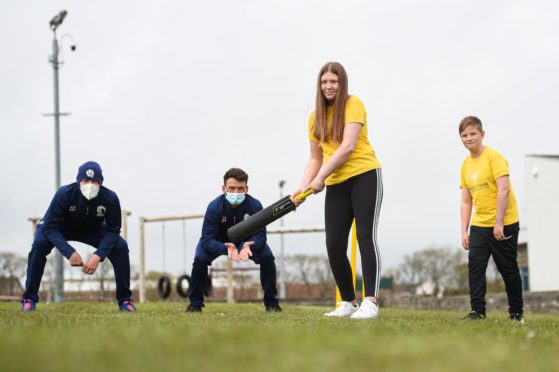It’s the sporting equivalent of Marmite: a cricket initiative which has divided opinion between those who dismiss it as killing the county structure and others who believe it is bringing the game to a brand new generation.
But even if The Hundred has horrified the purists and sparked puzzlement among those who wonder about the logic of launching a new tournament just 20 balls fewer than Twenty20, one thing has become abundantly clear since the competition was launched last month: and that’s the fact it has brought women’s cricket to a much wider audience and highlighted their skills in front of an unprecedented number of viewers.
I admit to being initially sceptical about the format, and I’m not going to change my mind that this crash-bang-wallop action is no substitute for Test cricket, but to be fair, it isn’t supposed to be. And when I watched a couple of talented Scottish youngsters, Kirstie Gordon and Abtaha Masqood, dismantle quality international opposition last week, the exhilaration and excitement on their faces as they paraded their talent was truly heartwarming.
Kirstie’s from Huntly, a 23-year-old spinner who has been bamboozling opponents in her homeland and further afield, and she has already represented England in the longer form of the sport against Australia in a one-off Test match in 2019.
But the Scot shouldn’t be faulted for her ambition any more than Eoin Morgan, who developed through the Ireland set-up before leading England to the 2019 World Cup.
On the contrary, the fashion in which she has taken to The Hundred was obvious when she starred for Birmingham Phoenix against Manchester Originals at Old Trafford. In the space of 20 parsimonious deliveries, she bewitched and bothered her rivals, taking three for 14 and also pouched a terrific catch to remove Georgie Boyce, as the prelude to winning the Player of the Match award and being interviewed by the Sky TV team.
Then, barely had she finished her exertions than Abtaha, a floaty 22-year-old leg-spinner from Glasgow, was inflicting similar damage to a star-studded Manchester line-up, snapping up for two for 14. Not bad for a player who was a last-minute registration for the inaugural season of the Hundred, but there again, this tournament is an opportunity for several Scots, who normally perform in near-silent obscurity, to enjoy the spotlight, the chanting and cheering and they are producing stellar displays.
It remains to be seen what will happen to The Hundred in the future. Personally, I can’t envisage it and the Vitality T20 Blast surviving in tandem, considering their similarities and how much they impinge on the current county schedule in England.
I also think the organisers of this inaugural city-based event have missed a trick in not creating a Scottish side, alongside the Welsh Fire, who are in the mix against the various English ensembles in London, Birmingham and elsewhere. Imagine the interest which would have been generated if men’s and women’s teams, playing their fixtures in Edinburgh, Glasgow or Aberdeen, had been invited to join the competition.
But these are considerations which will no doubt be discussed in a post-Covid world and when I spoke to Sue Strachan, the first-ever woman president of Cricket Scotland, she was enthusiastic about the displays of her compatriots such as Gordon, Maqsood and the Bryce sisters, Kathryn and Sarah.
She said: “The Concept of the Hundred is quite controversial in cricket circles, but I really think that it is going to be great for women’s cricket.
“It has already showcased on free-to-air TV how good these female cricketers are, but also how much fun they are having by playing in this competition.
“The crowds are big and it is fabulous to see so many young girls and boys coming along to watch. For those who don’t know anything about cricket, I think it is simpler to grasp even than the T20 format and it is fast and full of energy.
“It also allows cricketers such as Scotland’s Kathryn and Sarah Bryce, Abtaha Maqsood and ex-Huntly CC girl Kirstie Gordon, a chance to be seen and perform on the big stage and to play with and learn from some of the greats of the female global game.
“These experiences can only help these young women to develop their skills and follow their dreams to be professional cricketers. The Hundred can only be a good thing for women’s cricket and I salute those who have incorporated the aims of progressing gender equality within the concepts and structure of this competition.”
No doubt, the cynics and the nay-sayers will refuse to be swayed by any arguments. But the sight of Kirstie and Abtaha seizing their opportunity with mustard-like relish felt like a pivotal step forward. Women are no longer on the periphery of the game.
Instead, these sisters are doing it for themselves.
